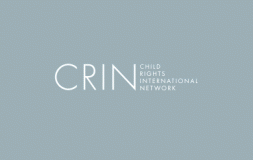Submitted by crinadmin on
The International Crisis Group is an
independent, non-profit, multinational
organisation, with over 100 staff members on
five continents, working through field-based
analysis and high-level advocacy to prevent
and resolve deadly conflict.Crisis Group’s approach is grounded in field
research. Teams of political analysts are
located within or close by countries at risk of
outbreak, escalation or recurrence of violent
conflict. Based on information and
assessments from the field, Crisis Group
produces regular analytical reports containing
practical recommendations targeted at key
international decision-takers. Crisis Group also
publishes CrisisWatch, a 12-page monthly
bulletin, providing a succinct regular update on
the state of play in all the most significant
situations of conflict or potential conflict
around the world.
Crisis Group’s reports and briefing papers are
distributed widely by email and printed copy to
officials in foreign ministries and international
organisations and made generally available at
the same time via the organisation’s Internet
site, www.crisisgroup.org. Crisis Group works
closely with governments and those who
influence them, including the media, to
highlight its crisis analyses and to generate
support for its policy prescriptions.
Crisis Group’s international headquarters are
in Brussels, with advocacy offices in
Washington DC, New York, London and
Moscow. The organisation currently operates
seventeen field offices (in Amman, Belgrade,
Cairo, Dakar, Dushanbe, Islamabad, Jakarta,
Kabul, Nairobi, Osh, Port-au-Prince, Pretoria,
Pristina, Quito, Seoul, Skopje and Tbilisi) with
analysts working in over 50 crisis-affected
countries and territories across four
continents. In Africa, those countries include
Angola, Burundi, Côte d'Ivoire, Democratic
Republic of the Congo, Eritrea, Ethiopia,
Guinea, Liberia, Rwanda, Sierra Leone,
Somalia, Sudan, Uganda and Zimbabwe; in
Asia, Afghanistan, Kashmir, Kazakhstan,
Kyrgyzstan, Indonesia, Myanmar/Burma,
Nepal, Pakistan, Tajikistan, Turkmenistan and
Uzbekistan; in Europe, Albania, Armenia,
Azerbaijan, Bosnia and Herzegovina, Georgia,
Kosovo, Macedonia, Moldova, Montenegro and
Serbia; in the Middle East, the whole region
from North Africa to Iran; and in Latin America,
Colombia, the Andean region and Haïti.ICG

